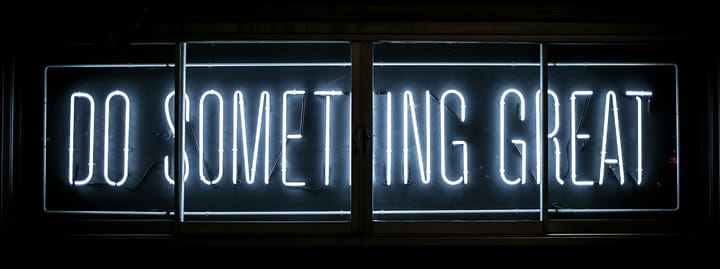How to Start Reading Again When Your Brain Is Fried
Can't focus on a book for longer than 5 minutes? Here's how to rebuild your reading habit when your attention span has gone to hell.
Can't focus on a book for longer than 5 minutes without checking your phone?
Join the club. We're all here with our fried attention spans, staring at that stack of books we bought with good intentions while mindlessly scrolling through TikTok for the third hour today.
Remember when you used to read entire books? When you could get lost in a story for hours? Yeah, me too. Those were simpler times, before notifications turned our brains into popcorn machines.
Here's what nobody tells you about getting back into reading: Your brain isn't broken. It's just been trained to expect instant gratification. The good news? You can retrain it.
Battle-tested by someone who went from "can't finish a chapter" to reading 50+ books a year. No speed reading courses. No productivity hacks. Just realistic strategies that work with your actual attention span.
Why Your Brain Fights Reading Now
Your phone has turned you into a dopamine junkie. Books feel slow and boring compared to the constant novelty of social media.
You're trying to read like you used to. Sitting down for 2-hour reading sessions when your current attention span maxes out at 15 minutes.
You're picking the wrong books. That dense philosophy book might be intellectually impressive, but it's not going to help you rebuild the habit.
You're putting too much pressure on yourself. "I should read more" guilt makes reading feel like homework instead of pleasure.
The solution: Start where you are, not where you think you should be.
🎯 The Attention Span Recovery Plan
Week 1-2: Micro-Reading Sessions
Start with 10 minutes. Set a timer. When it goes off, you can stop or keep going.
Why this works: Your brain learns that reading has an endpoint, reducing resistance.
Choose easy books:
- Young adult fiction
- Short story collections
- Graphic novels
- Books you've read before
No judgment zone: Reading "beneath your level" is better than not reading at all.
Week 3-4: Building Stamina
Increase to 15-20 minutes. Only if the 10-minute sessions feel easy.
Add a second reading session:
- Morning coffee + 10 minutes
- Before bed + 10 minutes
- Total: 20 minutes spread throughout the day
Track your progress: Use a simple reading log or app like StoryGraph.
Month 2: Habit Integration
Link reading to existing habits:
- Read during your morning coffee
- Replace pre-sleep scrolling with reading
- Read during lunch breaks
- Listen to audiobooks during commutes
Experiment with formats:
- Physical books for focused reading
- E-readers for convenience
- Audiobooks for multitasking
- Whatever works for YOUR lifestyle
📚 Book Selection Strategy (That Actually Works)
For Rebuilding Attention Spans
Page-turners over literary fiction:
- Thrillers that pull you forward
- Romance with engaging plots
- Mysteries that make you curious
- Fantasy/sci-fi with world-building
Short books over long ones:
- Under 250 pages to start
- Novellas and short story collections
- Books you can finish in 2-3 reading sessions
Familiar topics or genres:
- Books about your hobbies
- Authors you've enjoyed before
- TV shows adapted from books
The "Comeback Stack" Method
Keep 3-5 books accessible:
- One easy/fun book for low-energy days
- One challenging book for when you're focused
- One audiobook for commutes/chores
- One reference book for browsing
Rotate freely: No shame in switching books based on your mood.
🔧 Environmental Setup for Success
Create Reading Triggers
Designate a reading spot: Chair, corner of bed, specific coffee shop
Remove distractions: Phone in another room, TV off, notifications silenced
Set the mood: Good lighting, comfortable temperature, maybe some instrumental music
Phone Management (The Real Battle)
Put it physically away: Different room, drawer, purse
Use airplane mode: Still have access to reading apps without distractions
Replace scrolling time: When you reach for your phone, reach for a book instead
Reality check: This is the hardest part. Your phone is designed to be addictive.
🎧 The Audiobook Bridge Strategy
Controversial opinion: Audiobooks totally count as reading.
Why they help when rebuilding the habit:
- Hands-free reading during chores/exercise
- Professional narrators make stories engaging
- Speed can be adjusted to your preference
- Great for people with reading disabilities
Best practices:
- Start with fiction (easier to follow)
- Use while doing mindless tasks
- Try 1.25x speed if normal feels too slow
- Switch between audio and text versions
Library apps with free audiobooks:
- Libby (OverDrive)
- Hoopla
- CloudLibrary
📖 Reading Formats That Work for Different Lifestyles
Physical Books
Best for: Focused reading sessions, retention, no distractions
Challenges: Less convenient, limited by lighting, heavier to carry
E-readers (Kindle, Kobo)
Best for: Adjustable text size, built-in dictionary, long battery life
Challenges: Eye strain for some people, feels less "real"
Phone/Tablet Apps
Best for: Always with you, instant access to new books
Challenges: Notification distractions, eye strain, smaller screen
Audiobooks
Best for: Multitasking, commutes, people with dyslexia
Challenges: Easier to zone out, less retention for some
The secret: Use different formats for different situations.
🚫 Reading Mistakes That Kill Your Comeback
Trying to read like you used to
Start small and build up gradually
Choosing books to impress others
Read what you actually enjoy, not what you think you should read
Reading multiple books simultaneously when starting out
Focus on finishing one book to build confidence
Setting unrealistic goals
"52 books this year" when you haven't finished one in six months
Comparing yourself to heavy readers
Their highlight reel isn't your behind-the-scenes struggle
Forcing yourself through boring books
Life's too short for books you hate
📊 The 30-60-90 Day Reading Reboot
Days 1-30: Foundation Building
- Goal: 10 minutes daily, finish 1-2 short books
- Focus: Consistency over quantity
- Books: Easy, engaging, under 250 pages
- Metric: Days read, not pages read
Days 31-60: Habit Strengthening
- Goal: 20 minutes daily, finish 2-3 books
- Focus: Longer sessions, variety in formats
- Books: Mix of easy and slightly challenging
- Metric: Books completed
Days 61-90: Habit Solidifying
- Goal: 30+ minutes daily, finish 3-4 books
- Focus: Reading becomes automatic
- Books: Whatever genuinely interests you
- Metric: Enjoyment and retention
Building Your Reading Environment
The Minimum Viable Reading Setup
Comfortable seating: Chair that supports good posture
Good lighting: Reading lamp or natural light
Book storage: Easy access to your current reads
Distraction elimination: Phone out of reach
Upgrading Your Reading Life
Reading journal: Track books, quotes, thoughts
Book club or reading buddy: Accountability and discussion
Library card: Free access to thousands of books
Bookmarks and reading accessories: Make it feel special
When Reading Still Feels Impossible
Some days your brain won't cooperate. That's normal. Don't break your streak - just adjust your expectations.
Backup plans for low-energy days:
- Read one page (seriously, just one)
- Listen to audiobook for 5 minutes
- Flip through a magazine or graphic novel
- Read book reviews or summaries
Mental health considerations:
- Depression can make concentration difficult
- Anxiety can make sitting still challenging
- ADHD might require different strategies
- Be kind to yourself and adjust accordingly
The Long Game
Your attention span will come back. It takes time, but consistent practice rebuilds your focus muscles.
You'll start preferring books to scrolling. Sounds impossible now, but it happens gradually.
Reading will become a refuge again. Instead of feeling like work, it becomes your escape from the chaos.
You don't need to become a bookworm. Even reading 12 books a year (one per month) puts you ahead of most people.
Feeling overwhelmed by choice? Start with one book recommendation: "The Seven Husbands of Evelyn Hugo" by Taylor Jenkins Reid. It's engaging, well-written, and perfect for rebuilding your reading habit.
Get in touch with your reading comeback stories - I love hearing how people fall back in love with books.
Want more habit-building strategies? Check out our focus techniques that actually work or explore productivity systems for scattered brains.


